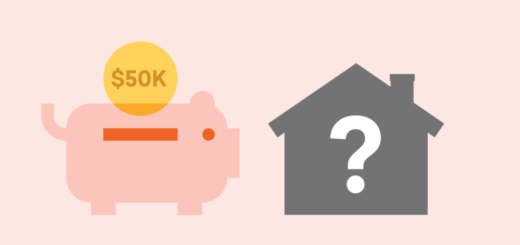What goes on If You Miss a Mortgage Payment?
Our goal is to give you the equipment and confidence you need to transform your finances. Although we obtain compensation from our partner loan companies, whom we will always identify, all opinions are our own. Credible Operations, Inc. NMLS # 1681276, is referred to here as “Credible. inch
While no one wants to miss a mortgage payment, it can happen — particularly if money is tight one month.
Generally, missed payments can cause your credit score in order to plunge and lead to late fees. Multiple missed payments can even lead to foreclosure, more damaging your credit plus leaving you with no home. However it doesn’t all occur at once.
Here is what happens if you miss a home loan payment:
The typical schedule of missed mortgage payments
A mortgage payment that’s overdue by just a couple of days might not have any impact on your credit. That’s because the majority of loan servicers offer an elegance period where you can make a transaction within 15 days after the due date without penalties. After the grace period, it may charge you a late fee, which should be explained in your loan documents.
But failing to create a payment altogether can negatively affect your credit as well as the home loan.
One missed mortgage payment
Your servicer will likely report the missed payment to the credit bureaus once it is 30 days late. This can harm your credit score. Generally, a late payment can cause more harm for people with higher credit scores.
If you haven’t produced a payment for 36 days, your loan servicer is required to contact you — though it may reach out sooner.
Great to know: The particular servicer can’t start property foreclosure proceedings right away, but the late payment is a serious issue nonetheless.
2 missed mortgage payments
Once you’re 45 days past due, your loan servicer may assign someone to your. They’ll contact you and inform you about your options.
After 60 days — or two missed mortgage payments — you’ll incur a second late fee. The late transaction will also be reported to the credit reporting agencies.
Don’t Miss: What to Do If You Fall Behind on Mortgage Payments
3 missed mortgage payments
After three missed obligations, your loan servicer will probably send another letter termed as a demand letter or observe to accelerate. The letter acts as a notice to bring your mortgage current or encounter foreclosure proceedings.
Additionally , your loan servicer will report the late payment to the credit bureaus, which might cause your credit score to drop even more.
Four missed payments
As soon as you’re 120 days past due, if you haven’t arranged for making repayments with your bank, your loan servicer can start the legal foreclosure process. It can also add attorney fees for your balance.
The loan servicer’s attorney may schedule a home sale and notify you of the property foreclosure date. This date differs with each state, but it may be as soon as two or three weeks after receiving your demand letter.
Good to know: If you make arrangements with your lender or pay the total amount because of before the date of sale, you may be able to keep your house.
The loan servicer will also report the latest late payment to the credit bureaus, and your credit score may drop once again. Each late payment can stay on your credit history for approximately seven years.
To find a great mortgage price, be sure to shop around . Credible lets you do this easily — evaluate home loans from all of our partner lenders in one place. It is free, and checking rates with us will never affect your credit score.
COVID-19 and mortgage foreclosures
Since early 2020, more than 7 mil homeowners have taken advantage of mortgage forbearance programs to keep their own accounts in good standing. Additionally , the U. S i9000. government put an aufschub on foreclosures through the first half of 2021.
Although both measures assisted foreclosure activity reach historical lows in 2020, property owners may need to find another kind of assistance. The foreclosure ban expired July 31, 2021, and about 1 . 75 mil homeowners were still in some sort of forbearance program.
You might be able to extend your forbearance protection or even get your account current by calling your mortgage lender plus setting up a plan.
This can keep your account and credit in good standing up. But if you can’t restart obligations, your loan servicer will have to take extra steps — such as evaluating you intended for assistance programs — before starting the foreclosure process.
Mortgage forbearance
With mortgage escape, your loan servicer wants to temporarily pause your monthly mortgage payments for a specific period of time. It also won’t begin the foreclosure process.
During the coronavirus outbreak, lenders can report that the mortgage account is in escape. But , per the LOVES YOU Act, your account must be marked as “current” if it was in good standing before getting into forbearance.
In case your loan is federally supported, you can call your loan servicer and request pandemic-related mortgage forbearance until Sept. 30, 2021. Extensions may use, too:
- Fannie Mae plus Freddie Mac loans: Conventional loan borrowers may request an extension for a maximum of 18 months of forbearance. You may be eligible for the extension if you entered forbearance before Feb. 28, 2021.
- Government-backed loans: Borrowers with a mortgage backed by the FHA, VIRTUAL ASSISTANT, or USDA may ask for an extension as long as they enrolled in forbearance on or before June 30, 2020.
Loan pay back options
Should you be 120 days or more past due on your mortgage payments or you are about to exit a mortgage forbearance program, your loan servicer must reach out to discuss choices.
Here’s the way you may be able to rehabilitate your account and avoid foreclosure:
- Defer payments: You can resume regular mortgage payments and move any kind of missed or suspended payments to the end of the mortgage term. This option is usually available for Fannie- and Freddie-backed loans, VA loans, FHA loans, plus USDA loans.
- Modify the mortgage terms: The servicer may agree to a loan modification , where you change the loan’s size or interest rate to make the obligations more affordable. On federally supported loans, your servicer may be able to lower your mortgage payment simply by 25% or more.
- Enter a pay back plan: You can even create a repayment plan along with your loan servicer if you have a conventional mortgage, FHA loan, UNITED STATES DEPARTMENT OF AGRICULTURE loan, or VA loan. You’ll spread your delinquent balance over a certain period of time — such as 12 months — on top of your regular mortgage payments. This will temporarily result in higher monthly obligations.
- Reinstate the loan: This option lets you pay back the outstanding balance all at once. Under all federally backed mortgage programs, loan servicers can not require you to pay off your forbearance balance with a lump sum. You could choose to do this if you have the funds.
Foreclosure safeguards
The loan payment options mentioned above may work for debtors who are financially sound. However the loan servicer may be able to begin the foreclosure process in case a borrower still can’t make payments after forbearance finishes or after missing 4 payments.
However , homeowners are protected by three new safeguards founded by the Consumer Financial Protection Bureau. Before starting foreclosure, the particular loan servicer must:
- Inquire the borrower to complete a loss mitigation application. The loan servicer must give you the opportunity to go after loss mitigation , which may prevent foreclosure. Loss mitigation options include some of the repayment options we’ve already discussed (such because loan modification and repayment plans) as well as a short sale .
- Confirm the property will be abandoned. In the event that loss mitigation doesn’t function, the loan servicer may start foreclosure proceedings after confirming a property is abandoned under local and state laws.
- Reach out to the borrower. The loan servicer will likely need to make a reasonable energy to reach the borrower.
These brand new safeguards apply on top of current rules that bar mortgage servicers from starting the foreclosure process until a homeowner is at least 120 days past due on a home loan. They’ll be in effect from Aug. 31, 2021, in order to Dec. 31, 2021.
How does the late mortgage payment impact my credit score?
When you’re at least thirty days behind on mortgage payments, your own loan servicer reports the information to the credit bureaus. The past due payment can remain on your own credit reports for up to seven years, and it may affect to your credit rating during this time.
Lacking several payments in a row can damage your credit score more than lacking only one payment. And several missed payments could result in property foreclosure, which is one of the most damaging marks you can have on your credit score.
Just how much will a mortgage late charge be?
House owners usually have a grace period of 15 days after the deadline to make their mortgage transaction. After that point, you may pay out a late fee for each month that you simply miss a payment.
The late fee is set by state regulation, but it usually equals 3% to 6% of your payment per month. So , if your mortgage transaction is usually $1, 000 as well as your late fee is 5%, then you may be on the catch for an extra $50 for each month you go without paying.
How can I omit a mortgage payment without charges?
If you prevent making mortgage payments but you’re in a foreclosure-prevention program — such as forbearance, loan modification, or a short sale — you might be able to avoid foreclosure and the credit hit. Perform several research and request one of these choices when you’re having monetary problems.




